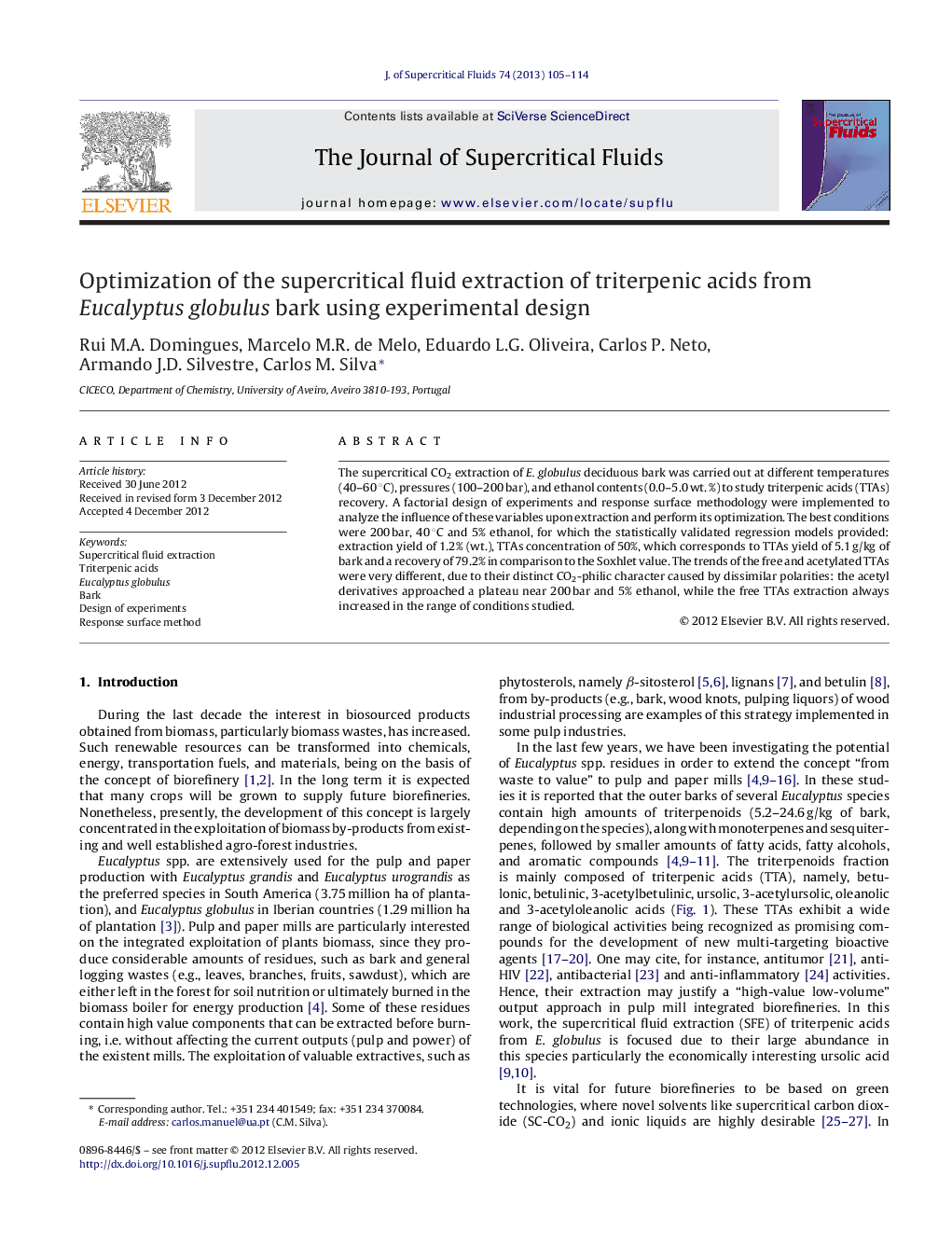| Article ID | Journal | Published Year | Pages | File Type |
|---|---|---|---|---|
| 230880 | The Journal of Supercritical Fluids | 2013 | 10 Pages |
The supercritical CO2 extraction of E. globulus deciduous bark was carried out at different temperatures (40–60 °C), pressures (100–200 bar), and ethanol contents (0.0–5.0 wt. %) to study triterpenic acids (TTAs) recovery. A factorial design of experiments and response surface methodology were implemented to analyze the influence of these variables upon extraction and perform its optimization. The best conditions were 200 bar, 40 °C and 5% ethanol, for which the statistically validated regression models provided: extraction yield of 1.2% (wt.), TTAs concentration of 50%, which corresponds to TTAs yield of 5.1 g/kg of bark and a recovery of 79.2% in comparison to the Soxhlet value. The trends of the free and acetylated TTAs were very different, due to their distinct CO2-philic character caused by dissimilar polarities: the acetyl derivatives approached a plateau near 200 bar and 5% ethanol, while the free TTAs extraction always increased in the range of conditions studied.
Graphical abstractFigure optionsDownload full-size imageDownload as PowerPoint slideHighlights► SFE of triterpenic acids (TTAs) from Eucalyptus globulus bark with pure/modified CO2. ► Experimental conditions tested: 40–60 °C, 100–200 bar, 0–5% ethanol. ► Optimization of the SFE performed following DOE and RSM approaches. ► SFE yields (total, free TTAs, acetylated TTAs) and TTAs concentration were measured. ► The behaviors of the SFE of free and acetylated TTAs are very different.
